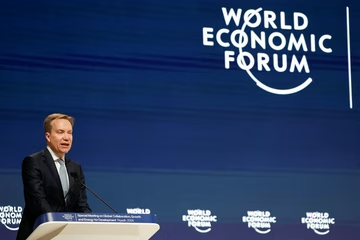Bosnia faces challenges amid increased migrant readmission requests from Germany

Germany has planned the deportation of 74,622 people under the Dublin III regulation in 2023, with most readmission requests directed at Croatia and Italy. But is Bosnia and Herzegovina ready for an increased influx of migrants who entered the EU through the Balkan Route? The Director of the Service for Foreigners' Affairs of BiH, Zarko Laketa, addresses the issue.
Oglas
Speaking about the readmission agreements between BiH, Croatia, and Serbia, Laketa emphasized that the EU's migration policy has largely been a "failure," which is why some member countries are closing borders and signing return agreements with non-member states.
"Regarding the readmission agreements with Croatia, Montenegro, and Serbia, I can say that since I became director almost two years ago, we have implemented the agreements as signed. We have had about 7,400 requests under the readmission agreement with Croatia and the EU this year, and we confirmed that around 4,500 migrants entered the EU from BiH, of which we executed approximately 2,900 requests," Laketa stated.
As for the agreement with Serbia, he noted a significant improvement compared to the previous year. "We had 800 requests to Serbia, with about 15% of them being fulfilled. However, cooperation has improved, especially with changes in Serbia's police structure, particularly the Border Police Directorate," Laketa added.
Laketa explained that one of the key differences between the agreements with Croatia and Serbia is that the Service for Foreigners' Affairs in BiH deals with migrants after they have already entered Bosnia and Herzegovina. Migrants who cross the border are registered in cities like Sarajevo or Bihać. "To file a return request, we need to determine if the migrant entered from Serbia or Montenegro, which has proven to be a major challenge," he said, adding that there is otherwise excellent cooperation along the eastern border.
Laketa also highlighted the importance of fast-tracking the process of migrant returns, which relies on immediate cooperation between border police from both countries and on-the-spot verification of migrant status.
Germany has planned the return of over 16,000 migrants to Croatia. Laketa responded to concerns about whether BiH could become a "hotspot" for migrants as a result: "Current data and operational information indicate that BiH will not become a migrant hotspot. Migrants still need to pass through BiH to reach the EU, and at present, we have around 900 migrants in camps, with a total capacity of 5,000 across the four centers in BiH," Laketa concluded.
Kakvo je tvoje mišljenje o ovome?
Učestvuj u diskusiji ili pročitaj komentare
Oglas
Kakvo je tvoje mišljenje o ovome?
Učestvuj u diskusiji ili pročitaj komentare
Oglas
NAJČITANIJE
Oglas
Oglas
Najnovije
Oglas
Oglas





 Srbija
Srbija
 Hrvatska
Hrvatska
 Slovenija
Slovenija



























































